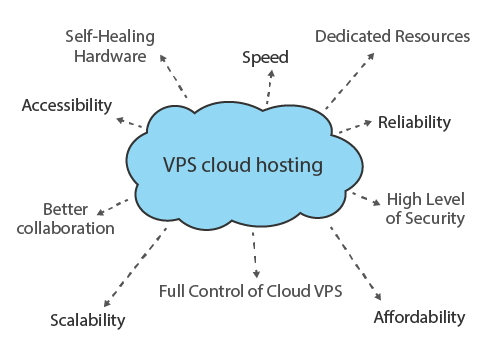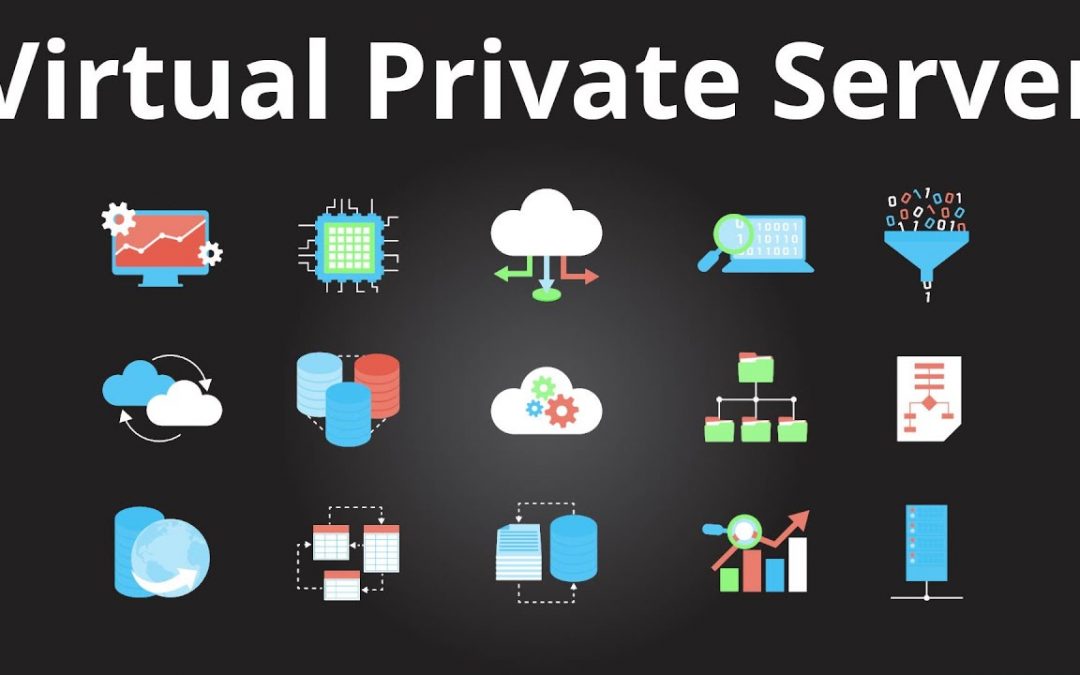A virtual private server (VPS) is a type of internet hosting service that has gained popularity in recent years due to its flexibility, scalability, and security features. It is a virtual machine that runs its own copy of an operating system and provides users with full control over their hosting environment.
Unlike shared hosting, where multiple users share the same resources and limitations, VPS hosting offers users more control over their hosting environment. Each user has their own virtual server that is isolated from other users, allowing them to customize their server settings, install custom software, and access the operating system.

Advantages of Virtual Private Server (VPS)
One of the main benefits of using a VPS is scalability. With a VPS, users can easily upgrade or downgrade their resources, such as RAM, CPU, and disk space, to accommodate changes in website traffic or business needs. This scalability allows businesses to save money by only paying for the resources they need, rather than investing in expensive hardware that may be underutilized.

Another advantage of using a VPS is security. Since each user has their own isolated virtual server, there is a lower risk of security breaches compared to shared hosting, where a single compromised account can affect multiple users. VPS hosting providers also typically offer a range of security features, such as firewalls, intrusion detection systems, and regular backups, to further protect their customers’ data.
VPS hosting is also an attractive option for businesses that require a high level of reliability and uptime. With a VPS, users can avoid the downtime that can occur with shared hosting due to other users’ activities or maintenance issues. VPS hosting providers typically offer 24/7 technical support to ensure that any issues are resolved quickly and efficiently.
How many types of VPS are there?
There are several types of VPS hosting available, each with its own set of advantages and limitations. Some of the most common types of VPS hosting are:
- Unmanaged VPS: With an unmanaged VPS, the hosting provider is responsible for providing the virtual server environment, but the user is responsible for managing and maintaining the server. This can include tasks such as installing software, configuring the server, and maintaining security.
- Managed VPS: With a managed VPS, the hosting provider takes care of server maintenance and management tasks, such as software updates, security patches, and backups. This allows users to focus on their core business activities without having to worry about server management.
- Cloud VPS: Cloud VPS hosting uses a network of virtual servers to provide users with greater scalability and flexibility. Users can easily add or remove resources, such as RAM or disk space, depending on their needs, and pay only for the resources they use.
- Windows VPS: Windows VPS hosting uses the Windows operating system, which is particularly useful for users who need to run applications that require Windows-based servers, such as Microsoft SQL Server or ASP.NET.
- Linux VPS: Linux VPS hosting uses the Linux operating system, which is a popular choice for users who prefer an open-source platform and want to customize their server environment to meet their specific needs.
Is VPS safe?
Yes, VPS hosting is generally considered to be a safe and secure option for hosting websites and online applications.
One of the main reasons for this is that each user on a VPS has their own isolated virtual server, which provides a greater level of security compared to shared hosting. In shared hosting, multiple users share the same resources and limitations, which increases the risk of security breaches if one user’s account is compromised.
VPS hosting providers also typically offer a range of security features to protect their customers’ data, such as firewalls, intrusion detection systems, and regular backups. Users can also take steps to enhance the security of their VPS, such as regularly updating their software and using strong passwords.
However, it is important to note that no hosting solution is completely immune to security threats. While VPS hosting is generally considered to be safe, there is still a risk of security breaches, particularly if users do not take appropriate measures to secure their VPS or if the hosting provider’s security measures are inadequate.
To minimize the risk of security threats, it is important to choose a reputable VPS hosting provider that offers robust security features and regularly updates its software. Users should also take steps to secure their VPS, such as implementing a strong password policy, using two-factor authentication, and regularly monitoring their server logs for suspicious activity.
Is VPS free to use?
In general, VPS hosting is not free to use. While there are some VPS providers that offer free VPS hosting, these services are typically limited in terms of resources and functionality, and may not provide the level of reliability or security that many users require.
Most VPS hosting services require payment for the resources and services provided, such as server space, bandwidth, and technical support. The cost of VPS hosting can vary widely depending on the provider and the resources required, but it typically ranges from a few dollars per month to hundreds of dollars per month for more advanced plans.
While the cost of VPS hosting may be higher than shared hosting, it offers a greater level of control, customization, and security, making it a popular choice for businesses and individuals who require a more robust hosting solution. Some VPS providers also offer a range of pricing plans to suit different budgets, allowing users to choose the plan that best fits their needs and budget.
Conclusion:
In conclusion, a virtual private server is an excellent choice for businesses and individuals who require a flexible, scalable, and secure hosting solution. With full control over their hosting environment, users can customize their settings and access the operating system, while benefiting from the security features and reliability offered by VPS hosting providers.

